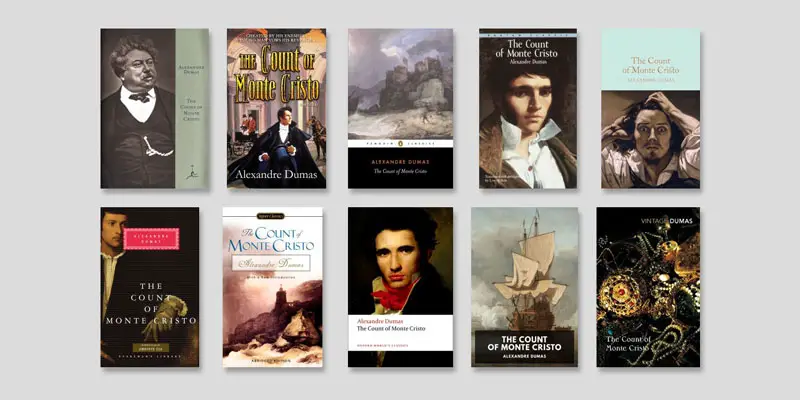Re-examining Dumas' The Count Of Monte Cristo: A Modern Perspective

Table of Contents
Justice and Revenge in The Count of Monte Cristo
The Count of Monte Cristo presents a fascinating, and at times ambiguous, portrayal of justice. Edmond Dantes, wrongly imprisoned and robbed of his happiness, meticulously plans and executes his revenge against those who wronged him. But is his revenge justified? The novel doesn't offer easy answers.
- The legal system's failures: The novel starkly depicts the flaws and injustices within the Napoleonic legal system, highlighting how easily the innocent can be condemned and the guilty can escape punishment. This resonates with modern concerns about judicial bias and the imperfections of the justice system.
- Edmond's meticulously planned vengeance: Edmond's revenge is not impulsive; it's a calculated, almost surgical, dismantling of his enemies' lives. He leverages his newfound wealth and knowledge, manipulating events to bring about their downfall. This raises questions about the nature of justice and whether such calculated revenge is ever truly morally acceptable.
- Moral ambiguities surrounding Edmond's actions: While readers sympathize with Edmond's suffering, many of his actions are morally questionable. He causes significant pain and suffering to innocent individuals caught in his web of revenge, blurring the lines between justice and cruelty. This moral ambiguity makes him a compelling and complex character, forcing readers to grapple with difficult ethical questions.
- Comparison with modern perspectives on justice and retribution: The novel's exploration of revenge resonates with contemporary debates about retribution, restorative justice, and the ethics of punishment. Edmond's actions prompt us to consider the effectiveness and morality of revenge as a form of justice, in contrast to more modern approaches focusing on rehabilitation and restorative practices.
The Enduring Appeal of The Count of Monte Cristo's Themes
The enduring appeal of The Count of Monte Cristo spans generations. Its continued popularity lies in its exploration of universal themes and its compelling characters. Why does it continue to captivate readers today?
- Universal themes: Betrayal, ambition, love, and forgiveness are timeless themes that resonate across cultures and time periods. The novel explores these themes with depth and nuance, making them relatable to readers regardless of their background or era.
- Relevance to contemporary social issues: The novel's exploration of themes like social injustice, corruption, and the abuse of power remains strikingly relevant to modern society. The struggles Edmond faces against powerful and influential figures echo contemporary concerns about inequality and systemic injustice.
- Enduring character archetypes: The characters in The Count of Monte Cristo are richly developed and represent timeless archetypes. From the unjustly accused protagonist to the scheming villain, the characters embody classic narrative roles, ensuring their relatability and impact.
- Enduring popularity in adaptations and media: The novel's continuous adaptation into films, television series, and other media demonstrates its enduring popularity and cultural significance. These adaptations highlight the novel's versatility and its capacity to connect with modern audiences.
Edmond Dantes: A Complex and Compelling Protagonist
Edmond Dantes' transformation from a naive young sailor to a cunning and wealthy Count is at the heart of the novel. This evolution is not simply a physical change; it's a profound shift in his personality, motivations, and morality.
- Edmond's initial innocence and subsequent transformation: The novel portrays Edmond's initial innocence and unwavering optimism, which are brutally shattered by betrayal and wrongful imprisonment. This transformation from a hopeful young man to a vengeful mastermind is a powerful and compelling aspect of the story.
- Edmond's motivations for revenge: Edmond's desire for revenge stems from a deep sense of injustice and a profound loss of everything he held dear. Understanding his motivations is crucial to comprehending his actions and the moral complexities of his journey.
- Edmond's moral complexities and internal conflicts: Edmond is not a simple hero or villain. He grapples with his own conscience and the consequences of his actions, showcasing the internal conflicts that arise from a pursuit of revenge. His journey forces readers to consider the moral implications of revenge and the potential for self-destruction.
- Comparison of Edmond with modern protagonists: Edmond Dantes' character archetype can be compared to many modern protagonists who grapple with similar issues of betrayal, revenge, and the search for justice. His journey echoes the struggles and moral dilemmas of anti-heroes in contemporary literature and film.
Supporting Characters and their Significance
The supporting characters in The Count of Monte Cristo play crucial roles in shaping Edmond's journey and the overall narrative. Their motivations and interactions with Edmond contribute significantly to the story's complexity.
- Relationships with Edmond: Characters like Mercedes, Fernand Mondego, and Abbé Faria each have complex relationships with Edmond, influencing his decisions and actions throughout the novel. Their interactions reveal different facets of Edmond's character and the impact of his revenge.
- Impact on the plot: The supporting characters drive the plot forward, creating conflicts and obstacles for Edmond while also providing opportunities for his revenge. Their actions and decisions shape the course of events in significant ways.
- Motivations and moral ambiguities: Each supporting character possesses their own motivations and moral ambiguities, enriching the narrative's complexity and offering different perspectives on justice and revenge. Their actions are not always easily categorized as good or evil, reflecting the complexities of human nature.
Conclusion
This re-examination of The Count of Monte Cristo highlights the novel's continued relevance in a modern context. Its exploration of justice, revenge, and the complexities of human nature remains powerfully resonant. The enduring appeal of its themes and characters ensures its place as a timeless classic. Revisit this masterpiece of literature and delve deeper into the enduring power of The Count of Monte Cristo. Engage with its timeless themes and reconsider its relevance to contemporary society. Explore different Count of Monte Cristo adaptations and share your interpretations! Start your reread today!

Featured Posts
-
 Governo Bayrou La Strategia Per Contrastare L Ascesa Di Le Pen
May 05, 2025
Governo Bayrou La Strategia Per Contrastare L Ascesa Di Le Pen
May 05, 2025 -
 Murder Investigation Mother Charged With Criminal Neglect Of 16 Year Old
May 05, 2025
Murder Investigation Mother Charged With Criminal Neglect Of 16 Year Old
May 05, 2025 -
 Bloom Fronts Fleetwood Mac Tribute Band Perth Mandurah Albany Shows
May 05, 2025
Bloom Fronts Fleetwood Mac Tribute Band Perth Mandurah Albany Shows
May 05, 2025 -
 Gigi Hadids Candid Revelation New Details On Bradley Cooper Relationship
May 05, 2025
Gigi Hadids Candid Revelation New Details On Bradley Cooper Relationship
May 05, 2025 -
 Fleetwood Macs Rumours 48 Years Ago A Broken Band Created A Masterpiece
May 05, 2025
Fleetwood Macs Rumours 48 Years Ago A Broken Band Created A Masterpiece
May 05, 2025
Latest Posts
-
 Is Canelo Alvarez Avoiding David Benavidez The Potential For An All Mexican Showdown
May 05, 2025
Is Canelo Alvarez Avoiding David Benavidez The Potential For An All Mexican Showdown
May 05, 2025 -
 Canelo Crawford Fight Potential For A Major Upset
May 05, 2025
Canelo Crawford Fight Potential For A Major Upset
May 05, 2025 -
 Is Eubank Jr Vs Benn More Exciting Than A Canelo Fight A Boxing Analysts View
May 05, 2025
Is Eubank Jr Vs Benn More Exciting Than A Canelo Fight A Boxing Analysts View
May 05, 2025 -
 Will Crawford Upset Canelo A Boxing Match Preview
May 05, 2025
Will Crawford Upset Canelo A Boxing Match Preview
May 05, 2025 -
 Canelo Vs Crawford Predicting The Upset
May 05, 2025
Canelo Vs Crawford Predicting The Upset
May 05, 2025
